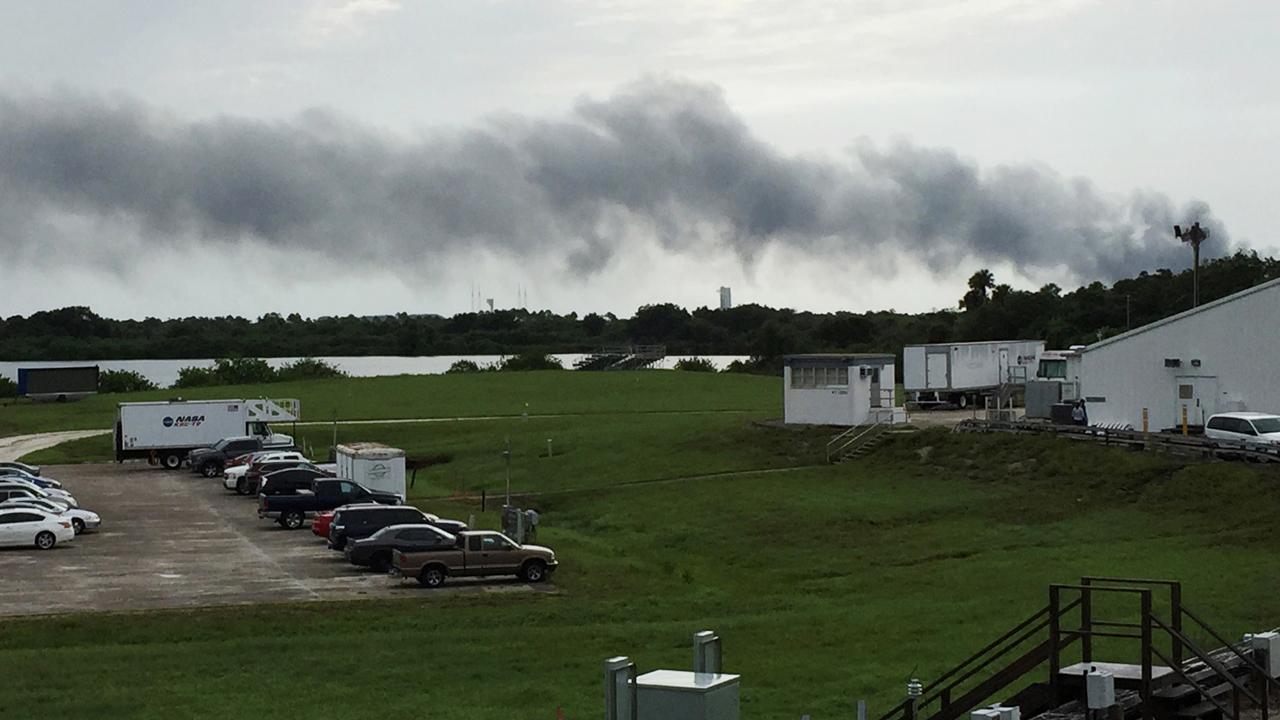Explosion Rocks SpaceX Launch Site in Florida During Test
An explosion rocked a SpaceX launch site Thursday during a routine rocket test.
SpaceX was conducting a test firing of its unmanned rocket when the blast occurred shortly after 9 a.m., according to NASA. The test was in advance of a planned Saturday launch from Cape Canaveral Air Force Station, which is next to NASA's Kennedy Space Center.
Buildings several miles away shook from the blast, and multiple explosions continued for several minutes. Dark smoke filled the overcast sky. A half-hour later, a black cloud hung low across the eastern horizon.
Additional details were not immediately available. There was no immediate word on any injuries; the launch pad usually is cleared before a test firing of a SpaceX Falcon rocket.
SpaceX spokesman, John Taylor, said he could not comment as he worked to gather information.
NASA — SpaceX's major customer — said the explosion occurred at Launch Complex 40 at the Air Force station, and Kennedy emergency staff was on standby. At the same time, personnel were monitoring the air for any toxic fumes.
The rocket was supposed to hoist an Israeli communications satellite this weekend.
The initial blast sounded like lightning, but was followed by the sounds of more explosions. SpaceX is one of two companies shipping supplies to the space station for NASA. It's also working on a crew capsule to ferry station U.S. astronauts; that first flight was supposed to come as early as next year.
Two NASA astronauts were conducting a spacewalk 250 miles up, outside the International Space Station, when the explosion occurred. Mission Control did not immediately advise them of the accident.
The explosion is a setback for SpaceX. The California-based company, led by billionaire Elon Musk, had been ramping up with frequent launches to make up for a backlog created by a launch accident in June 2015. SpaceX was leasing the pad from the Air Force for its Falcon launches.
The company is also redoing a former shuttle pad at Kennedy for future manned flights for NASA.




















